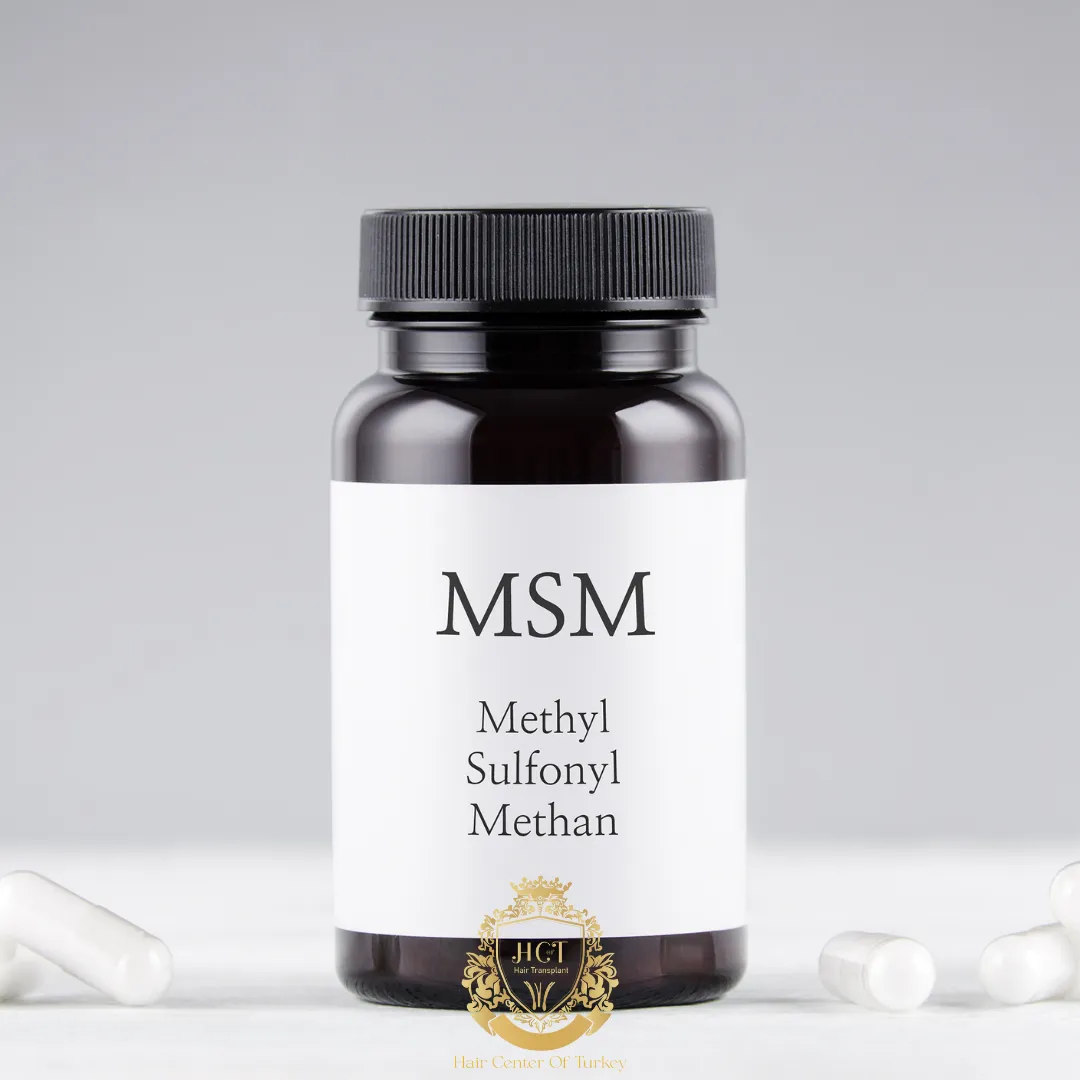
What Is MSM And Can It Really Help With Hair Loss?
MSM (methylsulfonylmethane) is a sulfur-containing compound that supports keratin production and may improve hair strength and growth conditions.
While it is not a standalone solution for all types of hair loss, MSM may help improve hair quality and scalp health when used consistently and appropriately.
What Is MSM?
MSM, short for methylsulfonylmethane, is a naturally occurring sulfur compound found in small amounts in plants, animals, and the human body. Sulfur plays a key role in the formation of keratin, the protein that gives hair its structure and strength.
MSM has long been used for joint health and inflammation support. More recently, it has gained attention as a supplement that may contribute to healthier hair growth.

Table of Contents
How MSM Works In The Body
Sulfur is essential for maintaining strong hair fibers. MSM helps replenish sulfur levels, supporting keratin synthesis and improving hair resilience.
MSM is also associated with reduced inflammation and oxidative stress. Since inflammation can negatively affect hair follicles, this supportive environment may help reduce breakage and improve overall hair quality over time.
What Does Science Say About MSM And Hair Loss?
Scientific research on MSM and hair growth is still limited. Some small-scale studies suggest improvements in hair length and thickness, particularly when MSM is combined with other nutrients.
Most existing studies examine MSM alongside ingredients such as biotin or collagen. This makes it difficult to isolate MSM as the sole factor. User reports often describe shinier and stronger hair, but results vary depending on the individual and underlying cause of hair loss.
MSM Dosage And How To Use It
MSM is most commonly taken as an oral supplement, though topical products also exist. Typical daily doses range between 1,000 and 3,000 mg.
Starting with a lower dose and increasing gradually helps assess tolerance. MSM is often paired with vitamin C, which may support absorption. Consistent use is required, and noticeable changes usually appear after several weeks.

MSM Compared With Other Hair Supplements
Biotin supports metabolic processes involved in hair growth, while collagen provides amino acids for hair structure. MSM complements both by supplying sulfur and supporting scalp conditions.
Unlike supplements that target hormonal pathways, MSM focuses on hair strength and follicle environment. This makes it suitable as part of a broader, balanced hair care approach rather than a single solution.
Who May Benefit From MSM?
MSM may be helpful for people experiencing hair thinning related to stress, nutritional gaps, or environmental factors. Those with brittle hair or slow growth may also notice improvement.
For genetically driven or hormone-related hair loss, MSM alone is unlikely to be sufficient. In such cases, it is usually considered a supportive option alongside medical or procedural treatments.
Possible Side Effects And Precautions
MSM is generally well tolerated. Some individuals report mild side effects such as digestive discomfort, headaches, or bloating, especially when starting supplementation.
Staying within recommended dosages reduces the risk of side effects. Anyone using medication, or who is pregnant or breastfeeding, should seek medical advice before starting MSM.

Choosing A Quality MSM Supplement
MSM supplements are available in capsule, powder, and liquid forms. Products labeled as highly purified or third-party tested are generally preferred.
Consistency and product quality matter more than form. Topical MSM products exist, but oral supplementation is usually considered more reliable for systemic support.
Frequently Asked Questions
Does MSM help regrow hair?
MSM isn’t proven to regrow hair; evidence for hair loss is insufficient.
What are the negatives of MSM?
MSM may cause nausea, diarrhea, bloating, headache, insomnia, itching; long-term safety unclear.
What are the big 3 for thinning hair?
Minoxidil, finasteride, and ketoconazole shampoo are commonly called the “big 3” for thinning hair.
How long does it take for MSM to work for hair growth?
No proven timeline; evidence for MSM in hair loss remains insufficient.
How much MSM should I take for hair loss?
No established hair-loss dose; discuss with clinician; common MSM doses are 1–3 g daily.




